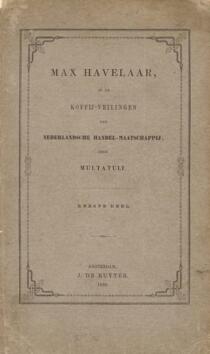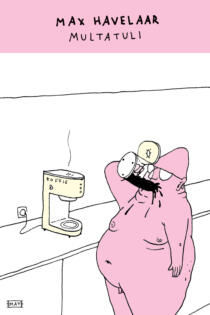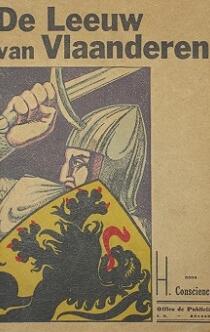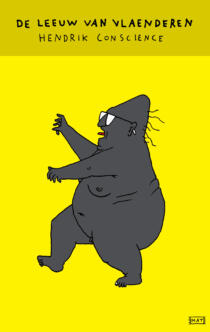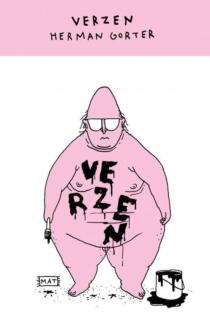The coffee-broker, Batavus Drystubble, is the embodiment of the devout hypocrite, a small-minded yet pompous bigot who prioritises his own profit over the welfare of his fellow man. He has an aversion to literature because stories are full of untruths, and poetic words can arouse unwanted emotions. His book is the bible but he has no qualms about using the word of God to his own advantage.
When an impoverished old school friend who, lacking a coat, only has a scarf wrapped around him, hands him a parcel of manuscripts in the hope that Drystubble will help him to get them published (to make some money), Drystubble finds this inconvenient. Drystubble tries to avoid poor people. But when he looks through the articles in “Scarfman’s parcel”, his commercial sense tells him that he could profit from the writings and so he gives the intern, Ernest Stern, the task of editing the manuscripts. Stern becomes one of the narrators of the novel and the audience (the Rosemeyers family) are deeply impressed by the stories.
Scarfman, who is actually Max Havelaar, is the protagonist and the exact opposite of Batavus Drystubble. He is sincere, compassionate and generous and does not tolerate injustice. With his slightly fiery temper and lively imagination, he is reminiscent of Don Quixote. Havelaar is the assistant governor in Lebak, a district in the Javanese province of Bantam. After he puts in a complaint against the exploitation and lack of rights for the Javanese, he receives a “honourable discharge”.
The fortunes of Max Havelaar are based on Eduard Douwes Dekker’s experiences, who used his book to blow the whistle on colonialism. This attack on the colonial system, with its descriptions of the injustice and poverty that result from it, prompted outraged reactions from the moment the book appeared. People accused the writer of a lack of patriotism and denied the equality of the natives or their impoverished state. They also took issue with the structure of the novel, a frame narrative full of witty digressions and embedded tales, which they found alienating. Readers wanted a linear storyline and a plot – but no one escaped being impressed by the masterly language. The speech to the rulers of Lebak and the love story between Saïdjah and Adinda were there to illustrate the abuses carried out in the Dutch East Indies, but it was the literary style that created emotional involvement.
By the time that Multatuli (Latin for “I have suffered much”) takes over the story from Stern at the end of the novel, with a call to King Willem III to show an interest in the fate of the Javanese people and to guarantee them a decent existence, the reader has lived through an immersive experience with a politically-engaged novel that remains very topical. He or she has also enjoyed a literary masterpiece, perhaps accompanied by a cup of coffee from the Fairtrade brand Max Havelaar.

